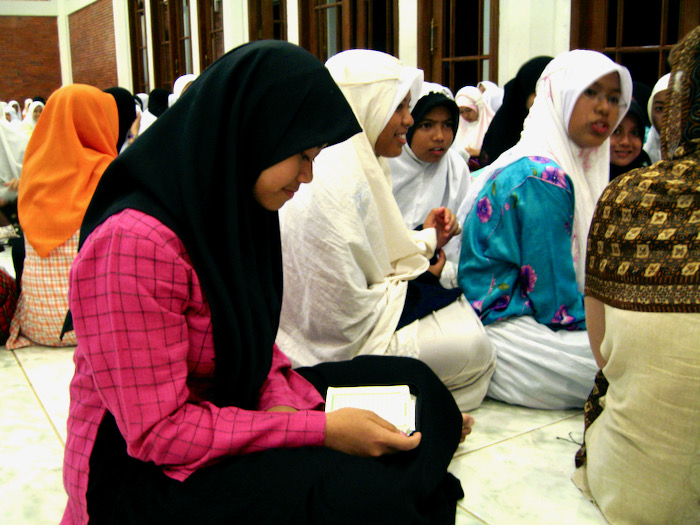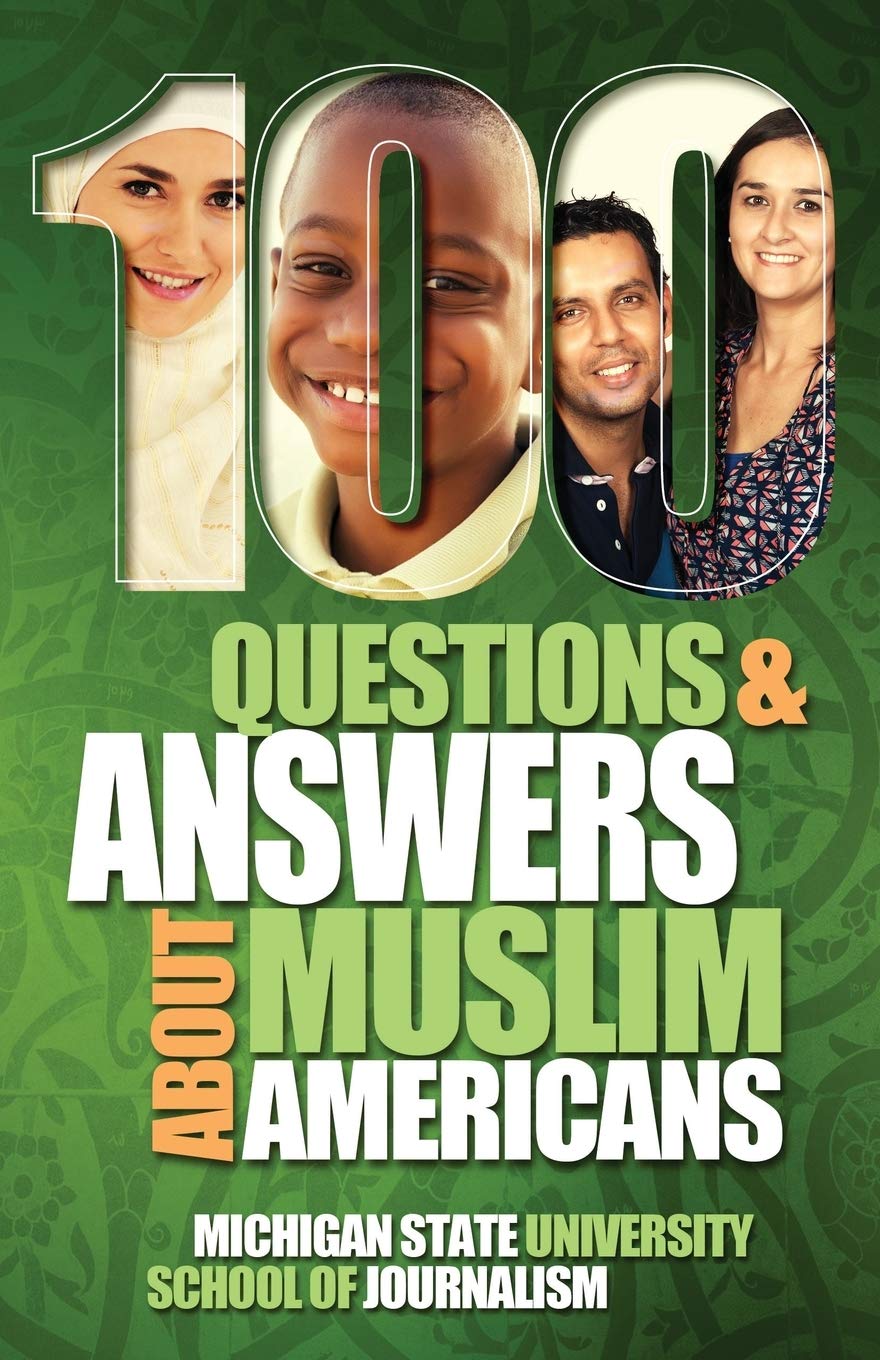
A TIME OF COMMUNITY RENEWAL—Around the world, Muslims will be fasting during Ramadan—and they also will gather with family and friends for meals after the sun sets each day. Then, many like to go to mosques where there often are special programs to enjoy and discuss the Quran. This photo of women at a mosque in Indonesia was taken by David Crumm during a reporting trip to cover Muslim life in Asia.
And for Non-Muslims? It’s a time to learn about our neighbors.
By JOE GRIMM
Director of the Michigan State University Bias Busters
EVENING OF SUNDAY MARCH 10—I am reminding myself that Ramadan is coming and I’m suggesting in this column that you do the same, because many of our neighbors, co-workers and professionals we meet in our daily lives are Muslim.
Twice, Islam’s holy month of Ramadan has caught me—a non-Muslim—by surprise, causing some awkwardness. Practicing Muslims do not eat or drink from sunup to sunset during Ramadan, focusing on prayer, studying the Quran and fasting.
The first time, I was working as a recruiter for a newspaper company and had asked a job prospect to meet me for lunch. It was not until she ordered just a canned soft drink—and did not open it—that I realized I had asked her to lunch during Ramadan.
Another time, I scheduled a lunchtime seminar at the office for the staff to meet some visiting journalists who happened to be Muslim.
Same problem—and was I embarrassed! Working for a major newspaper in southeast Michigan, the home to one of the most important Muslim communities in the U.S., I should have been aware.
In both cases, the people whose holiest month I had forgotten were most gracious. They insisted that plans not be changed for them.
But how could I have been so thoughtless? Part of my problem was that Ramadan can surprise you. You must think ahead—because this “month” moves earlier each year within our standard calendar. The Islamic calendar year has 12 months, each of 29.5 days, based on the cycles of the moon.
Islamic months are determined by when the crescent moon is visible, not by the Earth’s orbit around the Sun. So, the start of the month depends on what the moon is doing where you live on our planet.
This means the Islamic year is about 11 days shorter than the solar Gregorian year, which has months varying from 28 days to 31 and a leap year every fourth year.
The difference in calendars means Ramadan, the ninth month of the Islamic year, comes earlier on the Gregorian calendar than it was in the year before. In 2023, Ramadan was March 22 through Apr 20 in the United States. In 2024, Ramadan will be March 10 through April 9.
This will cause some people to ask, “Why is Ramadan so early this year?” But, on the Islamic calendar, Ramadan is not early. It happens when it always does—as the ninth month.
With this helpful column, I’m hoping that Ramadan won’t surprise you this year. You can greet Muslims by saying “Happy Ramadan” or “Ramadan Mubarak,” the Arab language equivalent.
You might consider asking friends, neighbors or co-workers whether you can join them in breaking the day’s fast after sunset. Warm hospitality during Ramadan is a longstanding Muslim tradition.
And, looking ahead, here’s another tip: Being date-aware will really help you in 2030 when Ramadan will come twice. That’s right: In that Gregorian year, the shorter Islamic calendar means one Ramadan will start around Jan. 5 and the next Ramadan will start around Dec. 26!
Want to learn more about our Muslim neighbors?
Get a copy of our MSU School of Journalism Bias Busters book: 100 Questions and Answers About Muslim Americans with a Guide to Islamic Holidays
Or, read the memoir of nationally known Muslim peace advocate Victor Begg: Our Muslim Neighbors: Achieving the American Dream, An Immigrant’s Memoir
For a more in-depth exploration of the many traditions surrounding this special month of fasting and reflection, get a copy of the guide to Ramadan by the noted Muslim advocate for women and children, Najah Bazzy: The Beauty of Ramadan


Tell Us What You Think